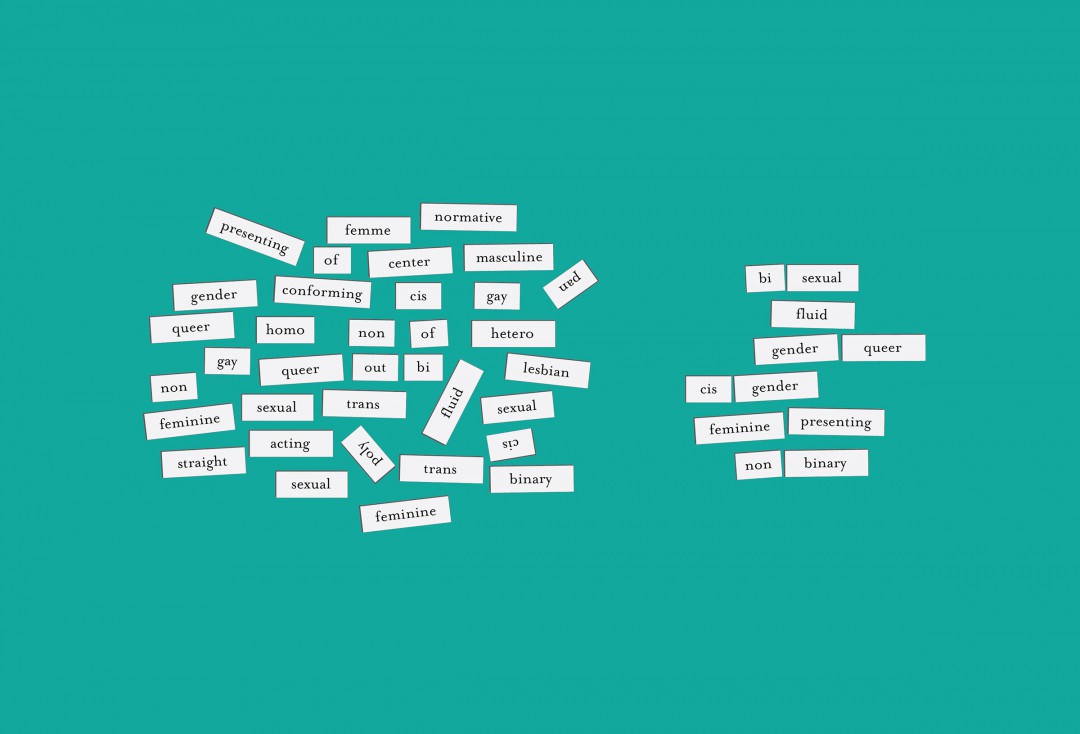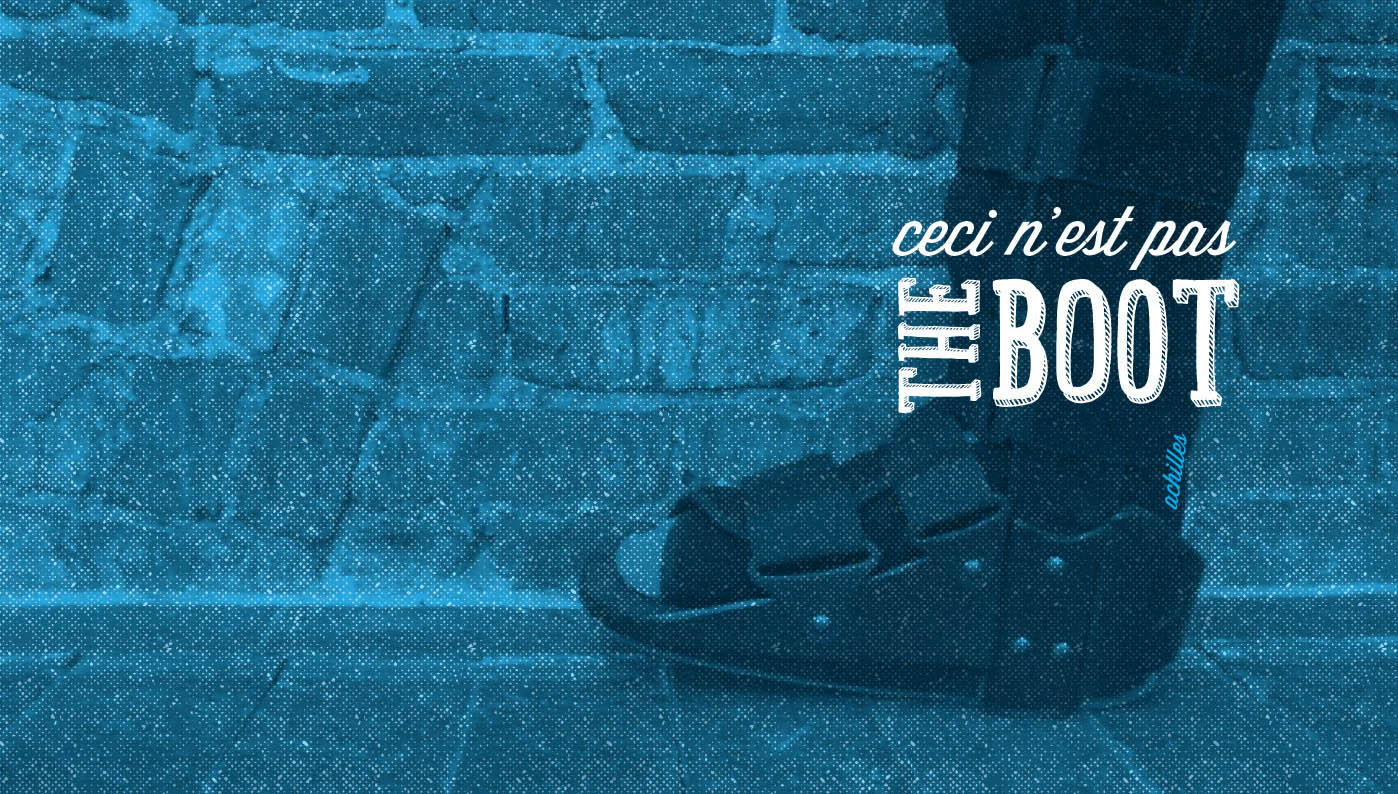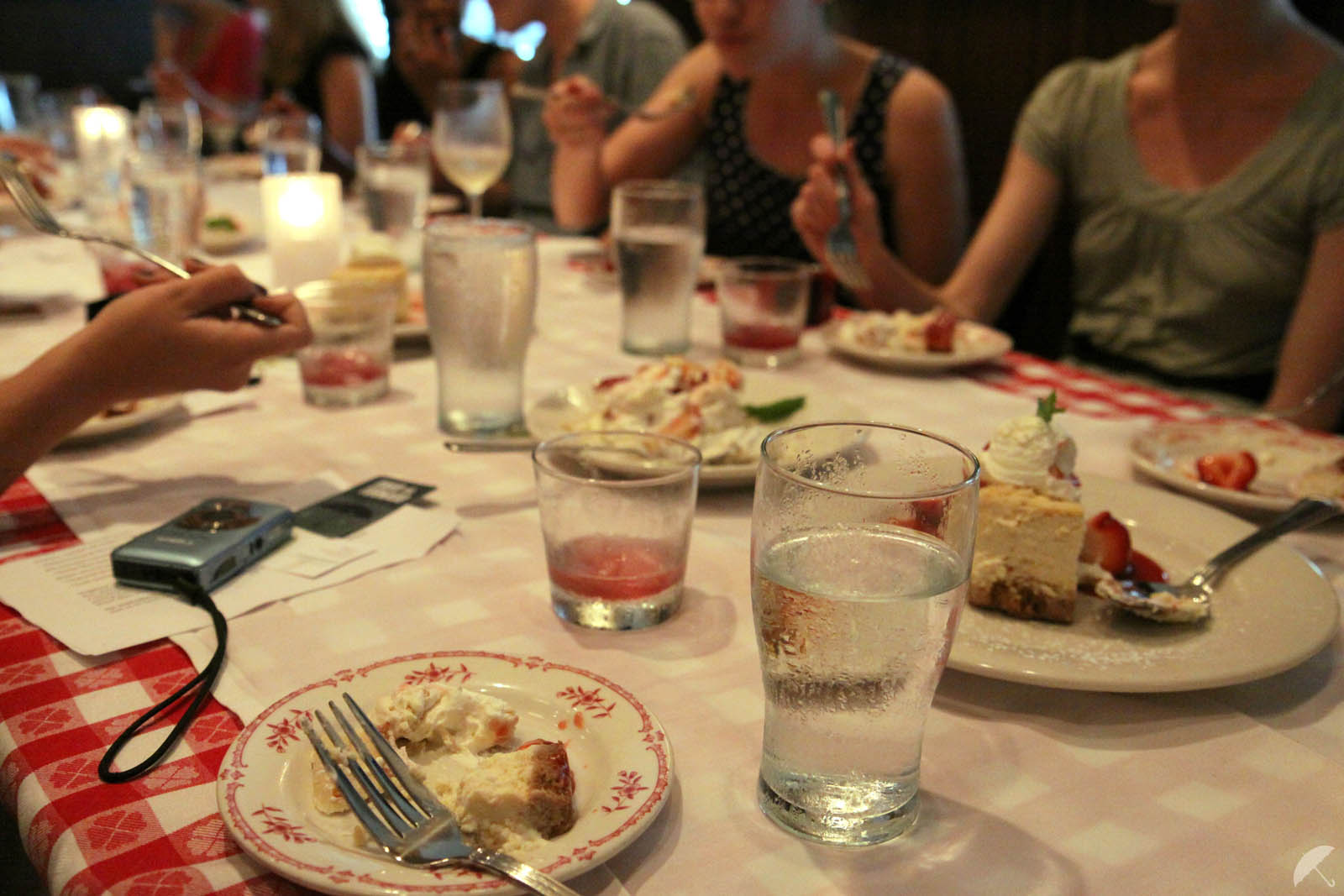On the eve of my 12th birthday my family inexplicably moved from the suburbs of Wisconsin to the deep, deep rural south. Not that the Dairy state would’ve been any more useful to my adolescent sexual/gender orientation confusion, but at the very least I would’ve been surrounded by other misfits finding comfort in theatre and art classes–neither of which existed within the Friday Night Lights school system of Polk County, Georgia. (To justly illustrate this narrative, my school did not not offer a single art class. Additionally, my high school built a cinder-block wall sealing up the drama stage to make room for the football team’s weight room.)
Sadly, during my humid coming-of-age there was no one that could explain to me that it was ok, and normal, to be attracted to the same sex. There was no one to explain to me that it was ok to want to wear a skirt. But most frustratingly, there was no one that could’ve possibly explained to me why I was attracted to both sexes. (Especially my parents.) The sparse media coverage of the gay conversation in the 1980’s was mostly exclusive to AIDS and AIDS activism–nothing like today. Being gay was barely a decade removed from the Diagnostic and Statistical Manual of mental disorders. The internet, as we know it today, did not exist. There was simply zero information available and no one to talk to.
For a young adolescent desperately seeking a positive affirmation of their sexual and gender identity I would have to wait many years for a modicum of clarity, e.g. my senior exit exhibition in college featuring duo-tone chromogenic self-portraits, in drag, exploring gender constructs. Fast forward to present day, I still find myself seeking some sort of label that accurately describes just what kind of queer I am. It feels partly self-prescribed but mostly like an obligation to anyone perplexed by my heterosexual marriage.
For as long as I can remember anyone meeting me for the first time assumes that I am gay. This is not an imaginary projection on my part. Once at a design conference I was asked if I was gay and responded with, “I’m married, actually,” to which the person sincerely responded, “Married? (short pause) But to a man, right?” (For perspective, this was when only one of all 50 states had legalized gay marriage. To be fair, I lived in that state.) And that’s ok. The presupposition of my sexual preference has never bothered me because while I’ve never felt that “gay” accurately tells my story, it’s not without partial credit.
I do my best, however, to subvert the gender specific clothing paradigm–one example would be wearing “boyfriend jeans”–jeans designed for women to mimic their boyfriend’s jeans, worn by me, a man.
I am unabashedly effeminate. I paint my toenails. I prefer clothes that ascend pleated khakis, plaid shirts and winged-tip shoes that have literally been in production since the Edwardian period. (I’ll save this rant for another day.) Let’s just say that there are some masculine-normative rules making it impossible for a guy to express themselves in a skirt. Anyone can wear pants regardless of gender. Notwithstanding the occasional presence of a kilt at a wedding (or funeral), not seeing any dudes rocking a cute skirt in the work place.
To me it’s frustrating and speaks volumes to just how deeply, and unfairly, rules of masculinity apply in our culture. (In most cultures for that matter.)
I do my best, however, to subvert the gender specific clothing paradigm–one example would be wearing “boyfriend jeans”–jeans designed for women to mimic their boyfriend’s jeans, worn by me, a man.
So… what’s my label?
It’s an interesting time for anyone that doesn’t fit within the tidy confines of being straight. Gay? Lesbian? Bi-Sexual? Even LGBTQ seems dated in its attempt to define the rainbow spectrum of gay. The array of labels available today for anyone trying to self-identify their queer soul is anything short of dizzying: Feminine of Center, Masculine of Center, Cisgender, Fluid, Gender Queer, Femme, Non-binary, Trans, Pansexual, Bigender, Gender Non-Conforming, Poly. This is the short list.
Once, in a moment of vulnerability and an awkward attempt to connect with someone not straight, I came out to a gay colleague as bisexual (for lack of more nuanced nomenclature). Without hesitation he told me that he didn’t believe bisexuality existed–that bisexual men were just too afraid to come out, instead seeking the confines of one foot in and one foot out of the proverbial closet door. I didn’t feel defensive–but instead thought it was really interesting. In my mind I had this gigantic rainbow flag flying thinking there was this big gay party in the sky where I could finally belong… instead, not unlike the bee-girl in the 90’s feel-good Blind Melon video, I was turned away.
But somewhere out there is a party for me, right? I just need to find my label, and then align myself with people of the same label. Specious at best, and also stupidly and predictably human.
I joined a Facebook group called Boston Femmes. I guess I didn’t quite understand the terminology–not so much a guy thing I guess. (In the queer world femme is typically a gay woman that presents feminine.) As a triathlete I joined a LGBTQ masters swim group. Not unexpectedly, it turned out to be mostly gay men which was/is totally fine, but before the start of one of the swims one of the members passed me and said, “Uh, hashtag, too much!” Maybe referring to my toenails or swim trunks, not sure, but it wasn’t super friendly.
So what do I do? Seek out the NBGQF (Non-Binary, Gender Queer, Fluid) masters swim program? Is there a Facebook group for me?
I’ve finally come to the conclusion that labels, no matter how perfect they may seem, are outdated and useless. The thought of defining myself with some complex lexicon of gay as a defense of who I am as a person and how I present myself is honestly tiresome. I know who I am and who I am not. I am not straight. I am not gay. I am not trans. But for lack of an all encompassing definition I am emphatically human. And I am happy with who I am–just a person with the ability to ascend the abstract of sexual orientation and the assignment of gender norms.




No Comments